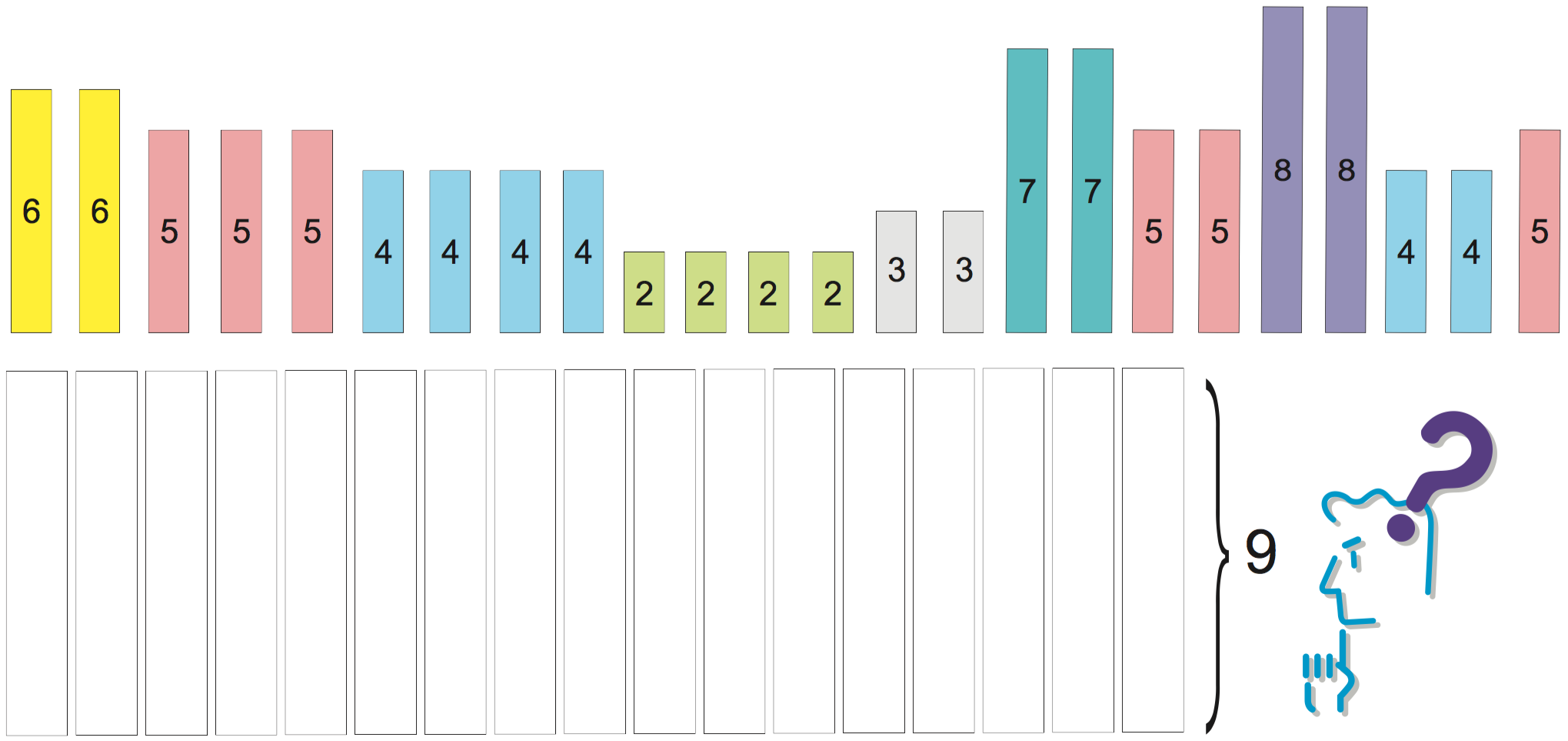Sheet 4
Task 1
Give an extensive formulation of the multicommodity flow problem and show that it can be derived by Dantzig Wolfe decomposition of the previously seen (compact) arc flow formulation.
- What is the complete Master Problem?
- What is the column generation subproblem?
Task 2
Consider generalized assignment problem with equality constraints:
\[\begin{align} \max &\sum_{i=1}^m\sum_{j=1}^n c_{ij}x_{ij}\\ &\sum_{j=1}^n x_{ij}= 1 \qquad i = 1,\ldots, m\\ &\sum_{i=1}^m a_{ij} x_{ij}\leq b_j \qquad j = 1,\ldots,n\\ &x \in \{0, 1\}^{mn}. \end{align}\]Solve an instance by delayed column generation treating the constraints $\sum_{j=1}^n x_{ij}= 1 \qquad i = 1,\ldots, m$ as the complicating ones and $m=3,n=2,[a_{ij}]=\begin{bmatrix}5&3\\3&8\\2&10\end{bmatrix},[c_{ij}]=\begin{bmatrix}20&16\\15&19\\19&14\end{bmatrix}$ and $[b_j]=\begin{bmatrix}6\\21\end{bmatrix}$.
Task 3
You are the person in charge of packing in a large company. Your job is to skillfully pack items of various weights in a box with a predetermined capacity; your aim is to use as few boxes as possible. Each of the items has a known weight and the upper limit of the contents that can be packed in a box is 9 kg. There is no concern with the volume they occupy. So, how should these items be packed?
| Weights of items to be packed in bins of size 9 |
|---|
| 6, 6, 5, 5, 5, 4, 4, 4, 4, 2, 2, 2, 2, 3, 3, 7, 7, 5, 5, 8, 8, 4, 4, 5 |

This is an example of a problem called the bin packing problem. It can be described mathematically as follows.
Bin packing problem
There are $n$ items to be packed and an infinite number of available bins of size $B$. The sizes $0\leq s_i \leq B$ of individual items are assumed to be known. The problem is to determine how to pack these $n$ items in bins of size $B$ so that the number of required bins is minimum.
-
Formulate the problem using a compact formulation and an extensive formulation.
-
Solve the given example using the extensive formulation. Solve the linear relaxation of the master problem by column generation and draw a plot about the dual bound development during the process.
-
Continue the process with branch and price if the solution found at the previous point is not integral.
def BinPackingExample():
B = 9
s = [6, 6, 5, 5, 5, 4, 4, 4, 4, 2, 2, 2, 2, 3, 3, 7, 7, 5, 5, 8, 8, 4, 4, 5]
return s,B
def FFD(s, B):
remain = [B]
sol = [[]]
for item in sorted(s, reverse=True):
for j,free in enumerate(remain):
if free >= item:
remain[j] -= item
sol[j].append(item)
break
else:
sol.append([item])
remain.append(B-item)
return sol
You find these data and some starting templates for your implementations in Python in our git repository [GIT]:
-
A template for the compact formulation:
compact_template.py. -
A template for the extended formulation with delayed column generation:
extensive_template.py
To add columns to your model without resolving from scratch see:
-
In
gurobipy, the last example from this doumentation page: Modify a model (gurobi.com) -
In Python MIP see documentation for
Columnandadd_var. -
In Pyomo see cutting_stock.py
-
In Pyscipopt there is a different philosophy. See test_pricer.py. Alternatively it is possible to follow this example.